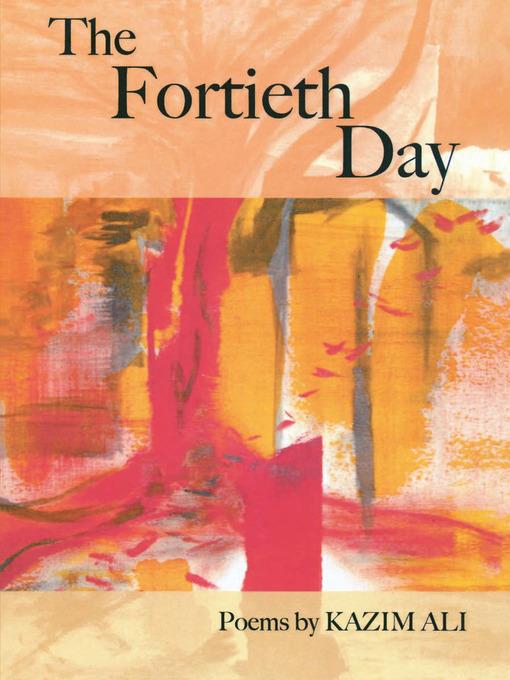
The Fortieth Day
American Poets Continuum
- اطلاعات
- نقد و بررسی
- دیدگاه کاربران
نقد و بررسی

March 17, 2008
Ali’s second collection continues the project he began in his debut, The Far Mosque
(2005). Through these associative and sometimes disjunctive lyrics, Ali explores Eastern religions—Islam, Hinduism—as well as his relationship with a more personalized “God” who represents the unknown while still providing a sense of belonging in the world. In “Afternoon Prayer,” Ali asks, “God, a curt question or a curtain.” In the opening, “Lostness,” Ali describes his particular notion of deity—“dear God of blankness I pray to dear unerasable”—and then asks, “how could I live without You if I were ever given answers”; later, God is equated with the sparseness of daily life: “dear afternoon God dear evening God my lonely world.” Sometimes Ali arrives at mysterious, striking assertions: “A person is only a metaphor for the place he wants to go”; elsewhere, one finds well-rendered images: “the ocean will receive itself / opening its green pages to glass and sand.” A lack of mooring in the physical world makes some poems a bit slight. Nonetheless, Ali eloquently draws attention to the strange, dislocating home we make in human experience, in which “you are being whipped // around the galaxy’s center / at 25 million miles a second.”

June 1, 2008
Ali ("Far Mosque") continues his task of creating a rejuvenated language that longs to be liberated from the weight of daily routine and the power of dogmatic usage. His very title prepares us for a journey of fresh and radiant pronouncements resonating with religious narrative about prophets and godly messengers. Through fragmented narrative and scattered visions, Ali fuses the earthly with the heavenly simply to glimpse a possible coherence somewhere in life: "May I request evening or more rain?/Doing laundry, getting new tires." His lines shiver like lost prayers looking for a lost god: "who you're praying to/is perhaps/a castaway; lost in publication/ unfinished." These poems effectively integrate Eastern ascetic voices to find eternity even in the ephemeral. Writing in the tradition of Wallace Stevens, Ali is clearly a poet of ideas and symbols, yet his words remain living entities within the texture of the poem. The result is a new and ambitious poetry that should be considered for all poetry collections.Sadiq Alkoriji, South Regional Lib., Broward Cty., FL
Copyright 2008 Library Journal, LLC Used with permission.




دیدگاه کاربران